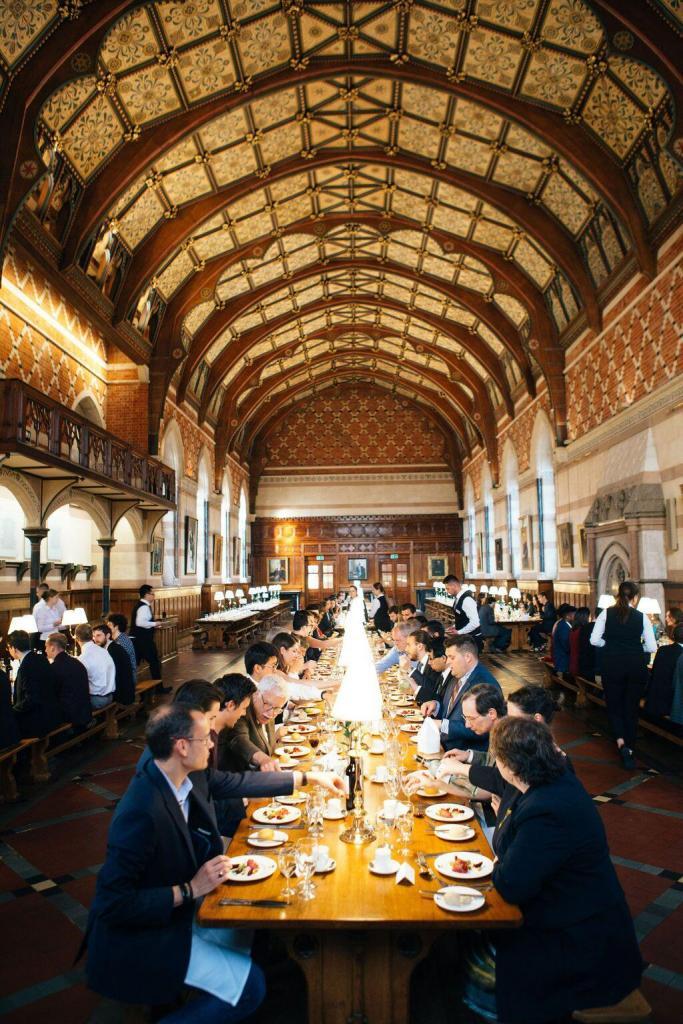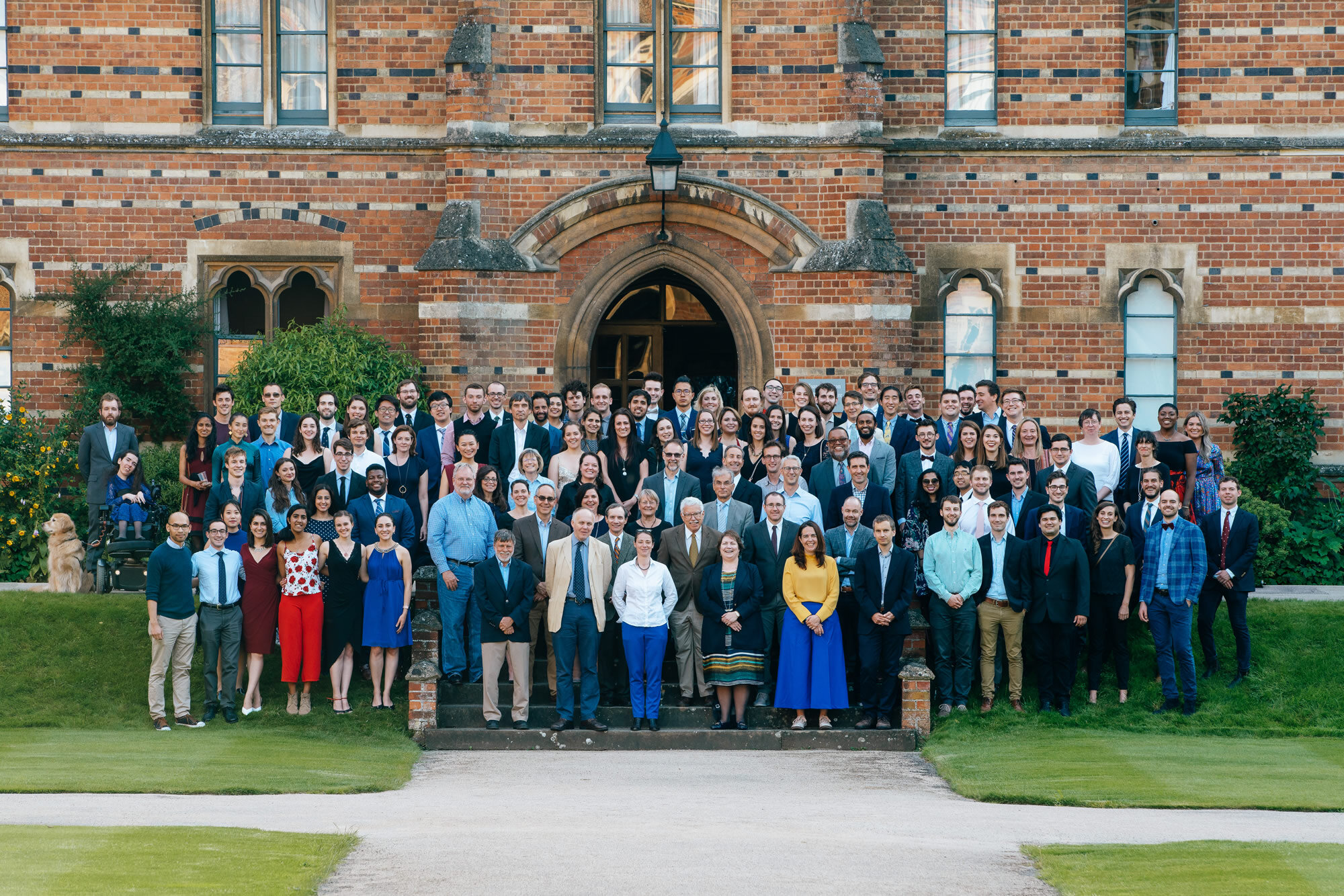With a backdrop steeped in history at the oldest English-speaking university, the Annual Research Workshop for the NIH Oxford-Cambridge Scholars and Wellcome Trust Programme was held at Keble College, at the University of Oxford, in the United Kingdom, June 25-27th, 2019. This year over 120 students, alumni, faculty mentors, administrators, and Alliance Directors traveled to Oxford to attend the Workshop.
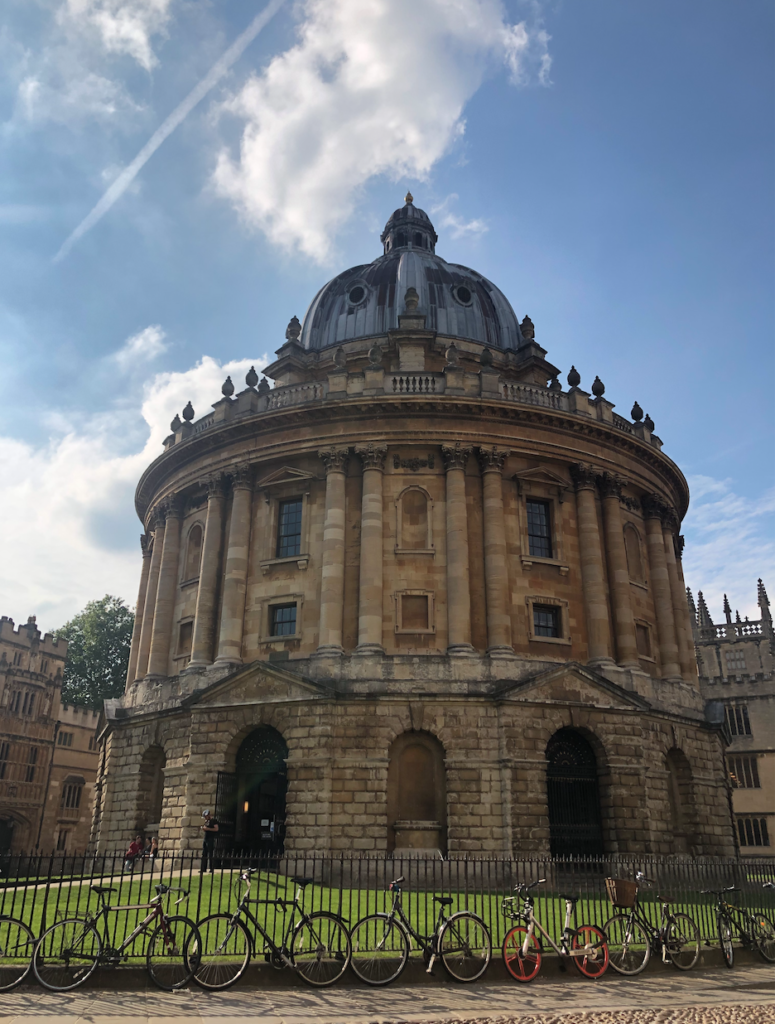
On the morning of June 25th, the Workshop opened with keynote Prof. Anna Gloyn, who presented her work on Genetics, Diabetes, and Metabolism. Prof. Gloyn is internationally known for her collaborative work leading multiple consortia involved in genetic and target discovery for Type 2 diabetes, working closely with academia, pharma, and SMEs. While Prof. Gloyn’s work itself was fascinating, her generous sharing and personal commentary truly struck a chord with the Scholars. She spoke candidly about how to be a good collaborator, finding a “champion,” striving to enjoy your life inside and outside of the lab, and selecting high impact/high reward tasks.
The Workshop communicated a continuous theme of meeting challenges as opportunities with talks on impactful research and career pathways from invited guest speakers. In a session entitled “Career Pathways and Career Breaks,” Dr. Cynthia Wright Drakesmith, a data scientist at the University of Oxford, detailed her seven-year hiatus from the lab in order to raise her two children and her triumphant return as a Daphne Jackson Fellow to retrain as a computational biologist. Dr. Charvy Narain introduced a session on science communication, describing her career from Nature journal editor to managing media coverage and public engagement for a variety of scientific research.
Special attention was given to Alumna Dr. Melody Duvall, Class of ’03, when she shared with the audience her ever-evolving career as a physician-scientist working at the intersection of pediatric critical care and research on lung inflammation in children. She shared her tips for the journey and highlighted the importance of mentorship, listening to your heart (and gut), and surrounding yourself with “people you would like to be” in ten plus years. The Scholars were enamored with the very accomplished Dr. Duvall, and scheduled follow-up meetings to talk to her further about her advice and to learn from her experience in the program. Another program alumnus, Dr. Andrew Ishizuka, Class of ’14, discussed his career path from academia to founding a spin-out, highlighting his biotech company Avidea Technologies and speaking about how he became interested in pursuing a career in science. The last talk in the career pathway series was delivered by Dr. Andrew Jermy, a former Nature Chief Editor, who highlighted careers in publishing. He provided the pros and cons of being a publisher including these pros: traveling, being family friendly, having job security, and establishing connections.
As is customary, the centerpiece of the Annual Research Workshop is highlighting student research projects. Over the course of the Workshop, fourteen students in advanced stages of their research, gave formal presentations on their work, followed by a question and answer period. Poster sessions provided yet another opportunity for students to interact around their research and to welcome the new members of the Class of 2019 on their first Workshop experience.
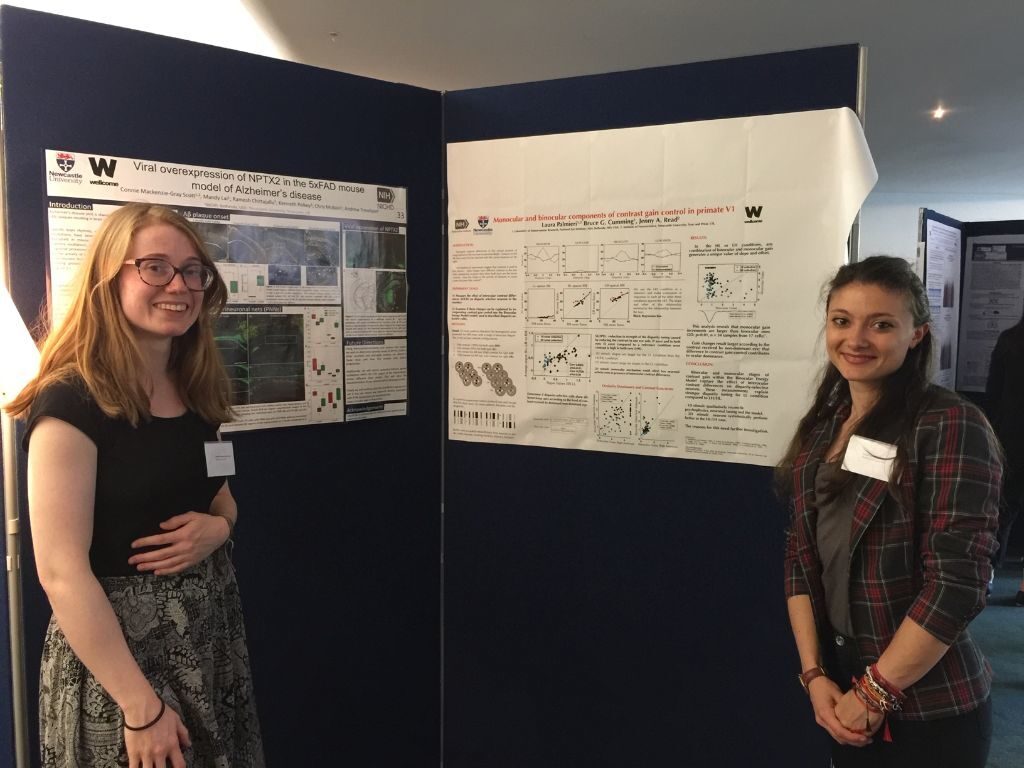
On the final day of the workshop, the morning session was kicked off by Prof. Maureen Kelley who discussed ethical research in developing countries. Later in the day, Alliance Director Tom Heyman chaired the Entrepreneurship and Business Spinouts panel. The panel featured topics across transitioning from academia to becoming an entrepreneur, as well as, learning about the Oxford Foundry and programs they support. Zoologist Dr. Manuel Berdoy discussed the design of experiments in his talk: “How NOT to Ruin a Perfectly Good Idea.” The final talk of the workshop was given by Prof. Richard Wade-Martins who presented: “Parkinsons in a Dish – from Molecular Mechanisms to Target Discovery.” The Annual Workshop concluded with a final poster session and a lively, well-attended Town Hall Meeting for all students and faculty in the program.
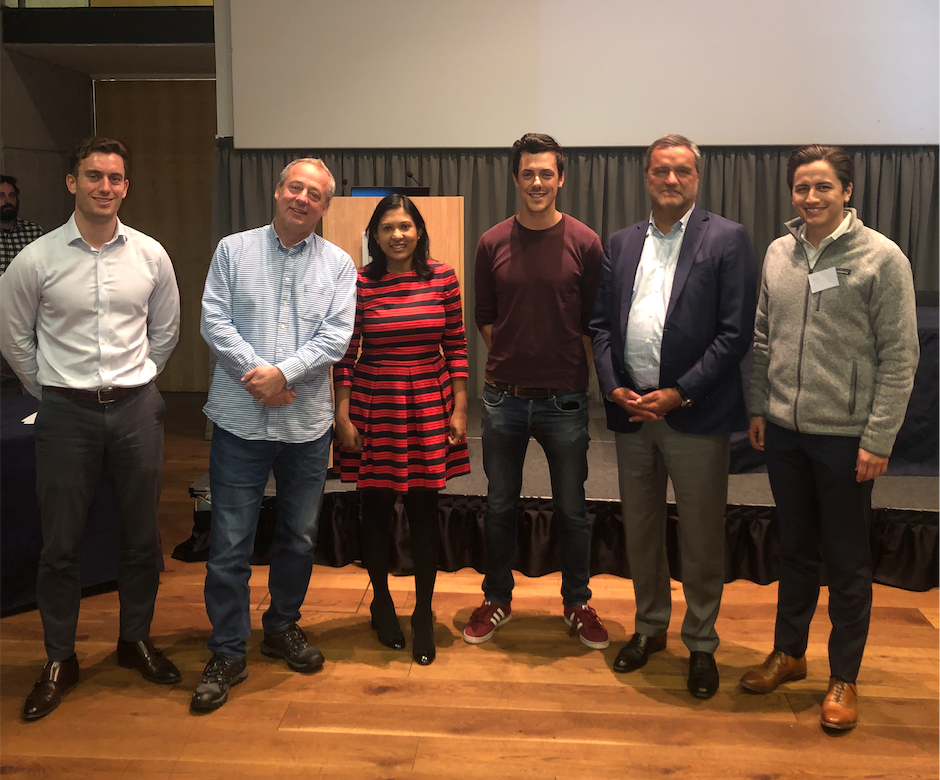
In the evening, before the formal gala dinner, students assembled for the traditional photograph of the full cohort on the Keble lawn, as well as some less than serious group shots. Students, mentors, administrators, as well as, members of the Alliance Board of Directors and guests were treated to an elegant dinner reception opened with a warm welcome from Prof. Gavin Screaton, Head of the Medical Sciences Division at the University of Oxford. Prof. Screaton recognized and thanked Prof. Sarah Rowland Jones for her many years of leadership as the Program Director at Oxford. Prof. Michael Dustin was officially welcomed, taking up the leadership mantel at Oxford. Awards were presented with Scholars Taylor Farley and Zinan Zhang recognized as delivering the best poster and best research talk awards, respectively. The much-anticipated annual science recognition awards were announced. Details on the winners can be found in a separate article on this page.
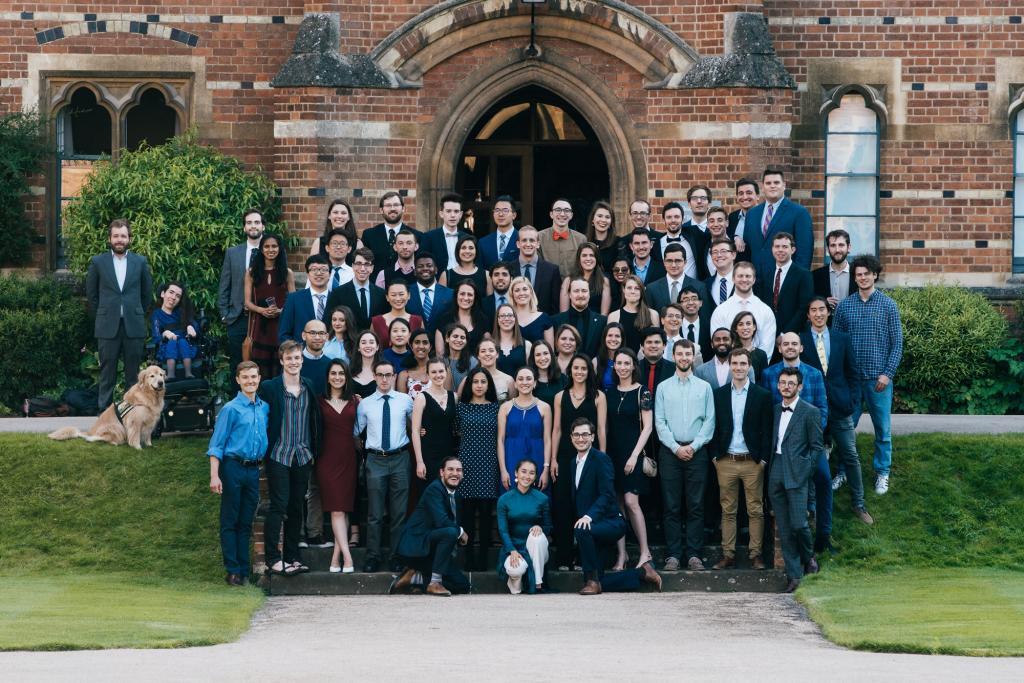
On behalf of the Alliance, the University of Oxford and the Scholars Program, we extend our thanks to Celgene and WCG for their generosity in supporting the Workshop.
